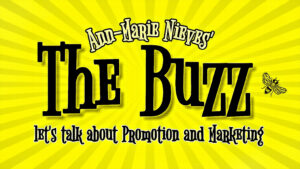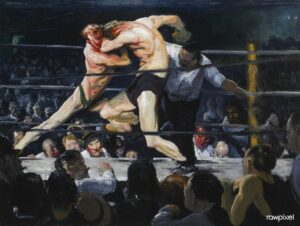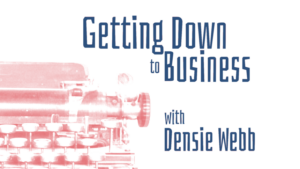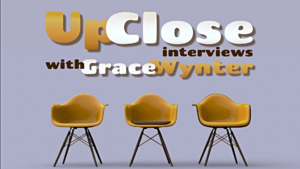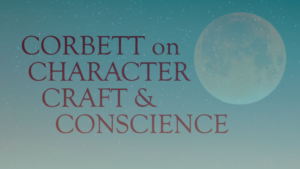business
It’s always a buzz to go into a bookshop in a city you haven’t been in for a while and see copies of your book still there, prominently displayed, months after publication. The perfect occasion, you think, to sign a few and have that attractive Signed Copy sticker on the front! But what if you haven’t organised a book signing in that particular shop? Is it okay to go in and ask to sign them?
In my experience, yes—it is always worthwhile. Booksellers like to have the Signed Copy sticker on the front too, an extra something to attract the customer’s eye and maybe nudge them over the line to purchase. And if you time your impromptu visit well—e.g. when it’s not too busy in the store—it’s been my experience that you can have great chats with booksellers and gain valuable information about how their customers are responding to the book in their particular area, what they themselves think are its strong points, etc.
If you handle it well—not as a hard sell but as an opportunity to make a connection and express your appreciation for the work they do selling your book—then people tend to respond very positively in my experience. It makes the possibility of handselling much more likely, as you and your book will be much more memorable to an individual bookseller moving forward. And that may also mean they will order more copies, if they run out.
It can of course feel a bit nerve-wracking to go in cold, especially in the bigger bookshops, and ask if you can sign copies of your book, but think about it as a micro form of market research as well as an opportunity to attract a bit more attention to your book and to yourself as an author. If you do this with several different bookshops with different clienteles within a certain designated area, in what is basically an impromptu book-signing tour, then you will gain an understanding of what works in one place as against another. Chatting with each bookseller, comparing how different shops have positioned the book, can also give you ideas and hooks for social media posts and reels.
In fact I would go so far as to say I have had more success with impromptu book signing visits than those which have been organised ahead of time and have required the bookseller to position you at a table and wait for customers to come to you. And it makes it less anxious for me as an author, too—nothing more humiliating than sitting at a signing table for ages, pretending to look nonchalant, while hoping someone might stop by the table with a book to sign!
Just a few quick tips:
Read More
Recently, a writer contacted me to ask about the legitimacy of an email they’d just received, from someone claiming to be a literary agent interested in representing them.
All by itself, the solicitation itself was a warning sign: reputable agents, who are drowning in submissions, have no need to drum up business and don’t typically cold-call writers to hawk their services. But I’d also gotten several complaints about this purported agent, so I knew for sure this was a “beware”.
I informed the writer–who had contacted me several times before to ask about what also turned out to be scams, and had themself been scammed by a predatory vanity publisher–and apologized for yet again being the bearer of bad news. “I guess everyone’s a bad guy,” the writer responded sadly, “and it’s pointless even to try.”
I understand this mindset. Especially for self-published authors, who are the primary target these days for the extremely numerous and highly aggressive solicitation scams I wrote about in my very first post for Writer Unboxed, it can certainly seem like publishing a book is equivalent to diving, unprotected, into a shark tank.
The reality, however, is not quite that awful. Yes, there are a lot of bad actors in and around publishing…not just scammers and predators, but people and companies who are well-intentioned but don’t have the skills to do the job (schmagents, unqualified freelance editors, amateur publishers). But that doesn’t mean there aren’t also plenty of reputable, competent people. They definitely exist. The constantly expanding universe of scams and pitfalls hasn’t changed that.
The writer’s response got me thinking, though. My standard advice for how to cope with the prevalence of scams is to educate yourself: learn as much as possible about publishing and self-publishing–and do it before you start trying to snag an agent, or querying publishers, or assessing self-publishing platforms and service providers. The more you know about how things should work, the easier it is to recognize bad practice when you encounter it. (The Writer Beware website is a good place to start.)
But it’s not just about being prepared with adequate knowledge. Mindset is also important: your default assumptions about, and responses to, the people and situations you encounter along your publication journey. Such expectations can help you, or they can hinder you–like my writer friend, whose bad experiences caused them to conclude, falsely, that no one can be trusted.
Following are some of the common damaging mindsets I see in my work with Writer Beware, along with suggestions for, hopefully, shifting them.
MINDSETS TO ABANDON, AND SOME TO ADOPT
Mindset 1: Everyone is a scammer. The writer mentioned above is far from the only one with a paranoia problem. I regularly hear from authors who are so traumatized by a scam experience, or even just the prospect of stumbling into one, that they don’t know which way to turn.
Believe me, I get it. Especially if you’ve been ripped off before, or are being hounded by a parade of solicitation fraudsters, or had a terrible experience with a publisher that wasn’t intentionally dishonest but screwed you anyway and behaved badly when things began to go wrong, it can seem like it’s not safe to trust anyone. But […]
Read MoreAs some of you may already know, in addition to being a highly sought-after shirtless model for romance novel covers, I am also a longtime professional musician, having earned my first money for playing drums at the ripe old age of 14. In fact, music was my fulltime profession until my late 30s. And I didn’t start seriously writing fiction (inasmuch as anything I write could be considered “serious”) until I turned 40. (So you might say that as a writer, I was a 40-year-old virgin. But I digress…)
Coming into a new-to-me art form with a lengthy background in another, I’ve been repeatedly struck by how many parallels I’ve encountered between the two creative paths. It has also been interesting to note the very different experience of learning one art form as a child, and learning another as an adult (inasmuch as a person like me could ever be considered an “adult”).
But I’ll leave the exploration of the whole young-versus-old-artist rabbit hole for some other day. Today, I want to explore five similarities I’ve found in pursuing two art forms – writing and music – at the professional level. I’ll start with the one I think is most important:
1. It’s a business.
Thus far I’ve been calling them art forms, but when you start actively seeking a paying audience for your work – whether written or musical – you quickly become aware that you are dealing with a business, which brings with it numerous rules, obstacles and rites of passage, many of which are not clearly stated or even openly acknowledged. Yeah, it’s fun like that. Trust me: You’re gonna want to wear a helmet.
In each case, because it’s a business, many decisions that will affect your success are A) based on money, and B) out of your hands.
As a musician, this could come down to who is willing to hire you, or to pay to see you perform, or to publish your music (an area that used to be where the money was in songwriting), or to finance your recording and/or tour, or to buy your recordings. Bottom line: It’s about who will spend their money on this thing you chose to do. As the artist, all you can do is make whatever product or service you’re offering as appealing – and as competitive in terms of financial value – as possible.
Writers are in a similar position. Whether you’re pursuing the traditional publishing route, or self-publishing, or trying to get a piece of your dramatic work produced either on stage or screen, somebody else has to decide that what you’re doing (or promising to do) is worth their money.
In both cases, as an artist, you are free to express yourself in any way you see fit. But as an artist who wants to be paid for that art, it quickly becomes obvious that some pathways lead a bit more directly to potential revenue generation than others. Hence my next observation:
2. Genre matters.
For example, a thrilling 70,000-word whodunit with a strong, confident protagonist stands a better chance of selling some copies than a 600-page second-person diatribe exploring the modernist paradigm of discourse that forces the reader to choose between subcapitalist situationism and the dialectic paradigm of consensus. (Incidentally, I have no […]
Read More
“The first rule of Fight Club is: you do not talk about Fight Club.”
Fight Club, the book and the movie, comes at you like a right hook. In my experience, you love it or you hate it. But unless you’re tragically hipster or a Gen Z nihilist, the last thing you are is ambivalent.
Which brings us to the topic of today’s post.
Welcome to the Suck.
I’ve been in the publishing industry for nearly 25 years. It’s always been the Wild West. Lately, though, it’s been looking less like a Western and more like a post-apocalyptic dystopia. We went from High Noon to The Hunger Games in six seconds flat.
In this landscape, your story is either a Sherman tank, or a ghost.
“One size fits all” fits no one.
I can’t tell you how many writers I’ve talked to who say their story “could appeal to everyone… anyone from age ten to seventy, any race, any gender, any walk of life!”
No, it really, really doesn’t.
Because nothing appeals to everyone.
Hell, I know people who don’t like pizza, and if that’s not proof there is no universally appealing thing on earth, I don’t know what is.
More importantly, appealing to everyone should never be your goal when it comes to writing, especially now.
“Universally appealing” generally means average, safe, standard.
That’s DMV beige. That’s unseasoned boiled chicken breast.
That’s ghost territory.
Turning it up to eleven.
It started with the rise of the internet, when a plethora of images, information, and interaction were suddenly, literally at your fingertips. Ironically, in a time where we have the largest buffet of brain candy in the world, people are starving for all the choices.
(If you’ve ever spent an hour perusing Netflix titles while choosing nothing, you know what I mean.)
As a result, it takes something truly vibrant, amplified, and dare I say polarizing to connect with the right readers… the ones who will not only love your work, but spread it like an underground rebellion through their various whisper networks.
In this environment, “meh” is the enemy. Ideally, you want people to either love it or hate it, but by God, they have strong feelings either way.
That’s what we’re looking for. Strong feelings.
But how do you do that?
Repeat with reader experience. Think about what draws readers to your genre. For example, in mystery, they love the puzzle, the challenge. They want the clues, the twists, the red herrings. They want to feel smart, but challenged. They want to know they could solve the murder – but still be pleasantly surprised at a fair, believable, yet unexpected finale.
Add depth to […] Read More
At the risk of sounding like a broken record, AI dominated the book biz headlines again, but publishing news (about books written by humans) gave it a run for its money. Amazon has a category all its own, of course. AI and copyright issues go hand-in-hand, but it’s looking like the EU may be a step ahead with possible approval of the AI Act. You can’t go online without reading about the potential for AI to both help and harm. But we can’t blame everything on AI, there’s also the cases of authors behaving badly—spoiler alert—don’t troll fellow authors on Goodreads, and it’s probably a bad idea to write a book about murdering your husband, and then, murder your husband. Then there’s Texas, where the state’s attempt to ban books has been ruled unconstitutional. We’ll see where that one goes. And a happy birthday wish goes out to Simon & Shuster, which has celebrated 100 years in the book biz. And lots more. Read on!
AI
Authors collaborating with AI and with each other
Exploring the frontiers of AI and book publishing
The past and future of copyright
Open AI admits it needs copyright material to function
Japanese laureate pokes a hole in the idea that AI will never write as well as humans
AI generated content makes trust more valuable
Opinion piece on saying ‘no’ to AI for creative pursuits
European publishers calling for approval of AI Act
Canada legislators are wrestling with the tangled mess of AI and copyright
Amazon
Jane Friedman offers up ways to improve your Amazon ranking
Amazon’s power over the book industry
Book Bans
Penguin Random House joins fight against book bans
Washington Senate makes it harder to shut down a library
Texas book banning law ruled unconstitutional
Book Stores
The internet’s favorite women-driven bookstore
Marketing and Promotion
Authors behaving badly: Goodreads’ review-bombing fiasco
5 reasons marketing is hard for writers
Publishing
Is there a fiction factory in conglomerate publishing?
46% of Americans didn’t read a book in 2023
Big Five’s hold on bestseller lists loosened a bit in 2023
Beware scam website impersonating Macmillan Publishers
How-to-murder-your-husband writer sentenced for murdering her husband
Simon & Schuster celebrates 100 years
Publishers need to establish a symbiosis with publishers
Self Publishing
Is self-publishing a good choice for authors in 2024?
Have you used AI? How? For story ideas, to write a synopsis, a query letter, an outline? What has your experience been? What do you see as the pros and cons? Will you use it again? Have you experienced book bans or attempted book bans in your schools, libraries, communities? Who do you know who’s fighting the good fight?
Read MoreWhen I first met today’s featured author, I had just started writing (very bad) fiction and was looking for other writers who were less bad at it than I was. I created a Meetup group, set up a meeting date, and waited. On that first day, only one person showed up: Terra Weiss. We’ve been friends ever since. In the almost ten years that have followed, Terra’s paid close attention to the publishing industry and adapted to its changes, all while honing her craft. Now she’s a successful indie author of six full-length novels that have received hundreds of glowing reviews across Amazon and other platforms. (Her novel Wingmom has over 500 reviews to date!) Whether your goal is traditional publishing, indie publishing, or something in between, if you’re interested in writing as a career, Terra’s interview provides a wealth of knowledge, and I’m beyond delighted to introduce her to the WU community today.
GW: Thanks for agreeing to share your writing and publishing experiences with the Writer Unboxed community. Can you tell us what genre you write in and when and why you started writing?
TW: Thank you so much for inviting me to be a guest here at Writer Unboxed. I’ve been reading and learning from your articles for years, and I’m honored to be able to share some of my experiences and hopefully give back. I write romcoms and romantic mysteries, which I started tinkering around with in 2013 when my daughter was a year and a half old. I needed somewhere to channel the creativity that was bottling up inside me because I had no time to pursue creative outlets like I did before my baby was born. Writing during her naps and playtime with Nana not only made me a better mom but also helped me realize that I have a passion for storytelling. I never stopped writing fiction, and now, my daughter is eleven and a half and becoming quite the author herself, despite facing dyslexia.
GW: You have self-published six full-length books to date, with a seventh currently up for preorder. Why did you choose the self-publishing route?
TW: I chose self-publishing for several reasons, the most important one being that I wanted creative control of my books, covers, and marketing. I have an entrepreneurial spirit, and after being in the trenches for two years now, I see firsthand that successful indie authors are hardcore businesspeople. On top of constantly bettering their craft and delivering new books, they’re also hustling on everything else running a business entails, from the endless marketing and social media to the administrative work and the finances. It’s long hours where you sink or swim, and in my case, doggie paddle for an eternally long stretch while learning to become the jack-of-all-trades. Because I thrive in that kind of environment, being an indie author is extremely rewarding to me, but it’s certainly not for everyone.
GW: What are the three most important lessons you’ve learned about publishing in today’s landscape?
TW: It’s a jungle out there.
For real. The old adages that used to be told about self-publishing no longer apply. A popular one was, “You don’t have to follow the rules […]
Read MoreThe current self-publishing industry has its roots in the mid-1990s, when three startups–Xlibris, Trafford, and AuthorHouse–began selling digital publishing services to individual authors.
(Bear with me: I’m getting to the subject of this post!)
Along with similar provider iUniverse, these companies later incorporated under the umbrella of Author Solutions, Inc. (AS). A pioneer in the assisted self-publishing space, AS also pioneered the hard-sell sales tactics, deceptive advertising, and expensive junk marketing techniques that dominate this publishing segment. (Junk marketing: marketing services that are cheap to provide, sold at a large markup, and are of dubious value for book promotion.)
Sometime in the mid-2000s, AS began outsourcing most of its sales and production to the Philippines, where there is a large, educated, English-speaking work force that’s also less costly than equivalent workers in the USA. Inevitably, some of the more entrepreneurial-minded of these staffers, seeing how lucrative it was to convince writers to spend large amounts of money to publish and market their books, decided to set up their own self-publishing enterprises to poach authors away from AS and other companies.
When I first started discovering these AS knockoffs (here’s my first blog post about them), they were mostly just selling Author Solutions-style publishing and marketing packages–although exponentially more overpriced and deceptively advertised than the original, with terrible customer service and the books and other products far more likely to be of poor quality (and that’s when they didn’t just take the money and run).
In recent years, though, their numbers have exploded—there are hundreds of AS knockoffs in operation now, and more cropping up all the time—creating fierce competition for customers in an increasingly crowded field. This has driven them to adopt ever more brazen practices to support their quest for writers’ cash: forging documents and contracts from Big 5 publishers, selling completely fictional products such as “book insurance”, engaging in elaborate front operations involving multiple fake businesses, and impersonating reputable literary agents, publishers, and movie companies.
Impersonation scams especially have become common over the past couple of years, and they can be quite convincing. In this post, you’ll find examples of the three types of impersonation scam you’re most likely to encounter, along with a look at the telltale signs that can identify them.
Read More
Do not read your reviews. Do. Not. Read. Your. Reviews. That’s the advice parroted to me over and over again from multiple writing friends just before the publication of my book, One Summer in Savannah. At first, I took this advice to heart without question. There must be a reason why every writer I know is consistently telling me this. Then I heard horror story after horror story about the mental toll reading reviews can have on writers and how relentless and cruel some reviewers can be.
And yet, I was curious. As writers, we know why reviews are important. Books are made available months before publication with the purpose of garnering positive reviews and ramping up word of mouth. Good reviews can play a critical part in the success of a book and work as excellent marketing and sales tools. Reviews can be very beneficial for writers. So why shouldn’t writers read their reviews?
What, if anything, can be gained by writers reading their reviews?
That’s the question I posed to five published writers of various genres who spoke with me on the condition of anonymity. Are there pros and cons to take from reading your reviews?
“A writer should only read their reviews if they can mentally handle it,” a mystery writer said to me. “I’m not opposed to writers reading their reviews and have even read a few of my own, but you have to have thick skin. If not, the result can be disastrous.”
There’s no greater example of this than when earlier this year, an author went viral after lashing out at the reviewer who gave her upcoming book a four-star review. Upset that the reviewer messed up her perfect 5-star average, the author not only named the reviewer but published a series of TikToks venting her frustration. The writer’s publisher later decided to part ways with the author but not before many reviewers explained that authors should stay out of reviewer’s spaces.
But should they? Should writers stay out of reviewer’s spaces? Can reading reviews, dare I say it, be useful for writers brave enough to handle criticism?
Absolutely, according to a historical fiction writer I spoke to. “A few astute reviewers correctly pointed out an issue with my plot, an issue that is not easily obvious but one that frustrated me,” she said. “Because of this, while on tour, I made sure I pointed out this issue and addressed it. I would have never been able to do that if I didn’t read a few of my reviews.”
Another writer I spoke to also agrees that reading reviews can be helpful for writers. “I wasn’t sure I wanted to read my reviews but in doing so I discovered that several reviewers commented on the pacing in my book and how much it frustrated them. While writing my next book, I was a little more conscious of the pacing.”
But not all writers agree that reading reviews is helpful. A romance writer I spoke with firmly believes that writers should stay off Goodreads and NetGalley. “I fail to see why writers would subject themselves to reading reviews,” she said. “If a reviewer complains about the book, it’s not like we can change anything at that point. I think writers […]
Read More
I’ve heard many blanket statements from clients and those shopping for PR and marketing services in the past 25 years:
One that sticks out more recently, is that radio provides no value. The medium is dead they declare; only podcasts really matter.
After having lunch last week with my colleague and friend Terry Cater, co-owner of Playback Producers, a publicity production company for authors, publicists & podcasters, it seemed a good time to address the truth about radio and podcasts with someone in the trenches.
I’ve heard many a time from clients that radio is dead and podcasts are it. In the same breath, clients ask to be on NPR and a good number believe they are a perfect fit for Glennon Doyle’s podcast We Can Do Hard Things? Unpack this for us, Terry.
Radio is alive and kicking! In fact, 8 in 10 Americans ages 12 and older listen to radio – that’s according to recent data released by Nielson Media Research. Your question comes in a timely fashion – August 20th is National Radio Day. There’s a reason this medium gets an entire day of awareness. Radio has survived the test of time and is often considered a trustworthy source of information. While podcasts seem to be all the rage, there are varying degrees of the quality and listenership of the shows. A podcast can be less established with a modest listenership, less regulated, and harder to find stats (especially when it comes time to figuring out your ROI).
With that said, podcasts are great when targeting a certain audience including fiction readers. Podcasts listeners also tend to be book buyers. In general, for a successful PR campaign, I recommend securing both radio and podcasts interviews to promote your book. Radio interviews will get you conversations with hosts who have a reliable audience and established metrics. Podcast interviews are great if you have a target market. Don’t underestimate the power of radio and be specific when going after podcasts.
Who is your ideal client?
Playback Producers’ ideal client is an author who is open to an honest discussion about the interviews we can score and the PR campaign we can produce for you. While we know everyone would like to be on a top show like NPR All Things Considered or Glennon’s podcast, we want a client who will listen to our candid advice on the number and type of shows we can book. This is because not everyone will get interviewed on those coveted shows. It’s always our goal to get you the most exposure possible, but we want to manage your expectations. Playback’s been doing this for almost 20 years, so we can help steer you in the right and fruitful direction.
Read More
Permit me a moment of apostasy.
I realize it might seem perverse to pursue this topic in light of Jim Dempsey’s far more sanguine post from just this past Tuesday (“How Books Can Change Lives”), but for some time, I’ve had the uneasy feeling that the merits of storytelling have been oversold. The use of the mercantile metaphor is deliberate. In any ever-increasing number of realms, the “craft of narrative” is being used to justify the unjustifiable—the dishonest, the trivial, the crass, the sanctimonious, the unnecessary, and all manner of other dubious ends.
Tell the story has become the hallmark of the hustle. Give the folks a convincing, compelling tale and they’re yours, facts be damned.
We’re even told that facts are meaningless outside a narrative—an approach that turns scientific theory into a kind of fable.
A particularly compelling example of this appeared in an article from late last year in the open access journal Natural Sciences. The article was titled, “Pseudo-embryology and personhood: How embryological pseudoscience helps structure the American abortion debate.” It opens with this:
Scientists have identified more than one possible point at which an individual life, personhood, with its own identity, and defined in various ways, begins. There is no consensus among biologists as to when an independent human life begins. Those people who invoke the scientific community to justify the idea that fertilization is the unequivocal moment of independent identity for the human embryo are expressing mythological and political ideas, not contemporary scientific facts. These mythologies have deep and powerful roots, and they are hard to leave behind. We often look back on how eugenics distorted American politics a century ago, how women were being sterilized in the name of science, and we congratulate ourselves, thinking that such distortions could not happen again. They have.
Though quite technical, the piece is highly instructive on how embryology does not fit neatly into the stories various camps want to tell about when “life begins”—conception? The quickening? Birth? (Interesting aside: in many traditions, soul and breath are the same word, implying the newborn does not acquire a soul until it draws its first independent breath. And since reading this article, I encountered still another account of when a newborn acquires personhood, this one from Killers of the Flower Moon by David Grann. He recounts that among the Osage Indians, a child is not considered a person until he or she is given a name, which symbolically includes him or her in the social fabric of the tribe.)
The point: stories that masquerade as scientific truth (or any truth) betray the motives of the teller—to persuade without the messy, complicated, often inexplicable evidence that an honest inquiry requires.
It’s not just swindlers and ideologues peddling narrative snake oil, of course. Some genuine heavyweights have opined on the matter.
Camus famously remarked, “Fiction is the lie through which we tell the truth.” And Tim O’Brien, whose “How to Tell a True War Story” should be required reading for anyone who intends to put words on a page, defined the purpose of fiction as “getting at the truth when the truth isn’t sufficient for the truth.”
Back in June, 2019 (four years ago—Holy Moly, where did the time […]
Read MoreLots of juggling going on in publishing this past month. Where it lands, nobody knows. Efforts to increase inclusivity also made the news. The book banning train has left the station in some states, the first defamation lawsuit over AI has been filed, and audiobooks may be coming to a brick and mortar store near you. Read on.
AI
AI’s Possible Effects on Publishing
Authors Join Legal Battle Brewing Over AI
Writers’ Guild of Great Britain Issues Policy Position for AI
Open AI Faces World’s First Defamation Lawsuit
Audiobooks
Audiobooks Offered in Some Brick and Mortar Stores
Book Banning
Booksellers in the Forefront of the Fight Against Book Bans in Texas
Industry Groups File Suit to Block Texas Book Rating Law
Free Expression Challenges in the US and France
Fight to Uphold Block Florida’s Stop-Woke Act
Bookstores
New and Improved Barnes & Noble?
Efforts to Save Flooded Vermont Bookstores
Inclusivity
Disability Representation in Publishing
How the National Braille Press Brings Books to Blind Readers
Indie Publishing
Writers Digest Lists Best Indie Websites for 2023
Self Publish with Barnes & Noble Press
Startup Proposes Influencer-Driven Publishing
Publishing Changes Afoot
Layoffs at Penguin Random House, Presses closing, Booksellers Unionize, Possible Publishing Buyout, The Possible Effects of a UPS Strike, Copyright Crisis and more.
Random House Buyout Triggers Departures
End of an Era at Random House?
One Billion Dollar Audiobook Sale?
Harper Collins Files Grievance After Union Head Fired
Mental Health Crisis Among Authors and Publishers
Ripple Effects of Layoffs and Shuttered Imprints
The “Merchification” of Book Publishing
Canada’s Downsizing at Access Copyright
Did I miss any major news? If yes, let me know, and I’ll try to follow up next month!
Read More




